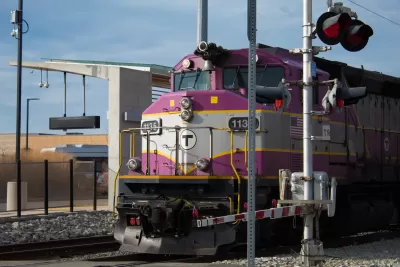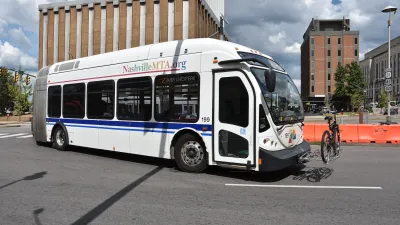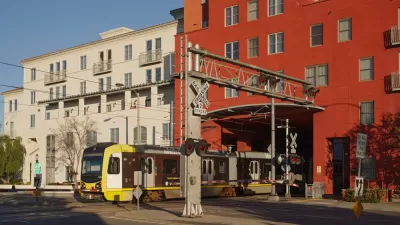Marshfield residents voted down a rezoning plan that would have met state requirements for the town to allow development of multifamily housing near MBTA stations.

According to the Patriot Ledger, voters at a town meeting in Marshfield, Massachusetts (pop. 25,905), rejected a proposed plan that would pave the way for transit-oriented development. The proposal to rezone 84 acres to allow multifamily housing would have brought the town into compliance with the statewide MBTA Communities Act, which requires “177 towns and cities across Massachusetts designate at least one zoning district within a half mile of public transportation that allows for multifamily housing by right,” reports Hannah Morse.
Marshfield residents’ rejection of the state mandated zoning change comes two months after voters in Milton, Mass. (pop. 27.003) revoked their previously approved zoning changes, which prompted the state to sue the town and cancel a $144,800 grant for a local seawall.
Marshfield has until December 31, 2024 to submit plans to the state that zone for a minimum 1,185 units, or 10 percent of its housing stock (Milton’s deadline was the end of last year), but Morse reports that Marshfield Town Counsel Bob Galvin told residents in advance of the vote that he believes the state will sue immediately and that their case could be combined with Milton’s.
“If you’re expecting them to rule that this state law is illegal, I think, being candid with all of you, we’re likely to be unsuccessful,” Galvin told town meeting attendees.
FULL STORY: Marshfield voters reject MBTA zoning plan. Might the state sue the town?

Trump Administration Could Effectively End Housing Voucher Program
Federal officials are eyeing major cuts to the Section 8 program that helps millions of low-income households pay rent.

Planetizen Federal Action Tracker
A weekly monitor of how Trump’s orders and actions are impacting planners and planning in America.

Ken Jennings Launches Transit Web Series
The Jeopardy champ wants you to ride public transit.

Rebuilding Smarter: How LA County Is Guiding Fire-Ravaged Communities Toward Resilience
Los Angeles County is leading a coordinated effort to help fire-impacted communities rebuild with resilience by providing recovery resources, promoting fire-wise design, and aligning reconstruction with broader sustainability and climate goals.

When Borders Blur: Regional Collaboration in Action
As regional challenges outgrow city boundaries, “When Borders Blur” explores how cross-jurisdictional collaboration can drive smarter, more resilient urban planning, sharing real-world lessons from thriving partnerships across North America.

Philadelphia Is Expanding its Network of Roundabouts
Roundabouts are widely shown to decrease traffic speed, reduce congestion, and improve efficiency.
Urban Design for Planners 1: Software Tools
This six-course series explores essential urban design concepts using open source software and equips planners with the tools they need to participate fully in the urban design process.
Planning for Universal Design
Learn the tools for implementing Universal Design in planning regulations.
Ada County Highway District
Clanton & Associates, Inc.
Jessamine County Fiscal Court
Institute for Housing and Urban Development Studies (IHS)
City of Grandview
Harvard GSD Executive Education
Toledo-Lucas County Plan Commissions
Salt Lake City
NYU Wagner Graduate School of Public Service





























